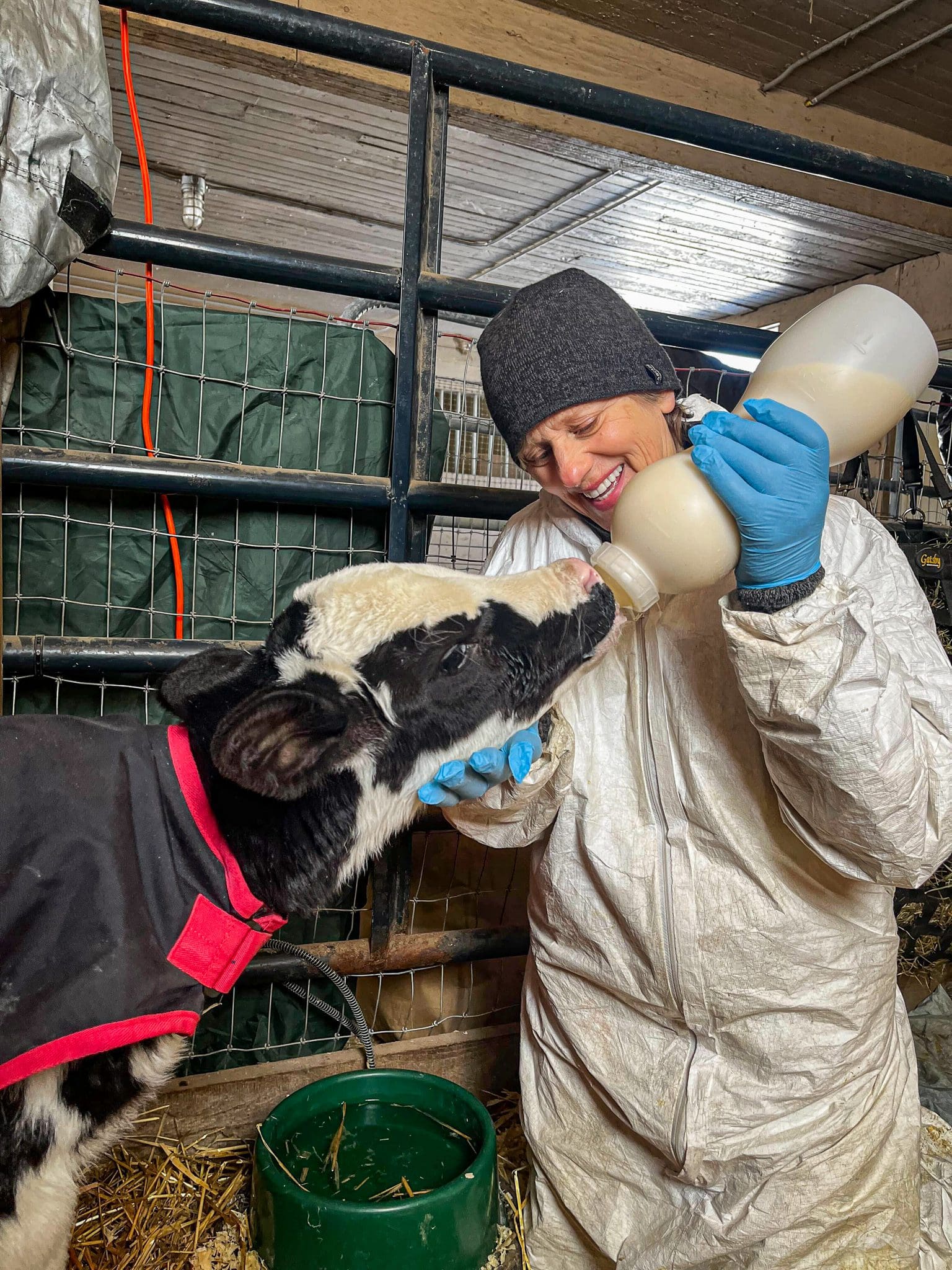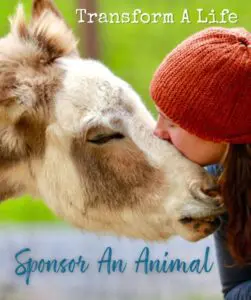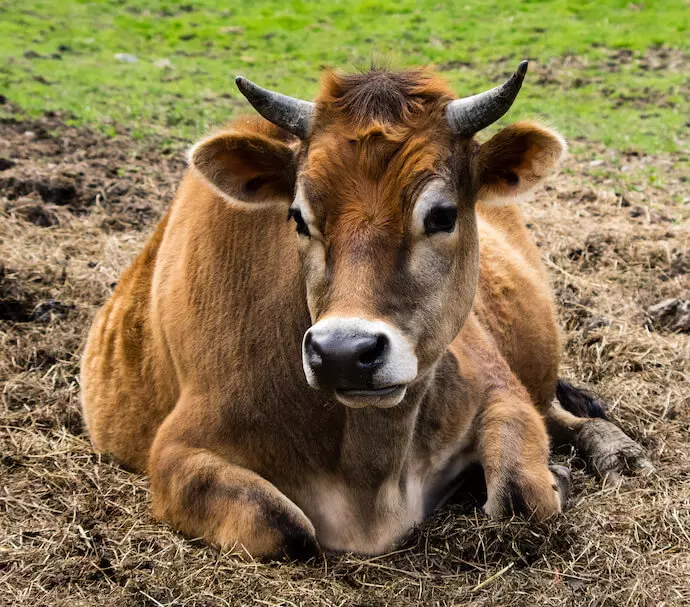
A Lifetime of Love: Rescue is Not a One-Time Event
At Catskill Animal Sanctuary, we’ve learned a thing or two in 22 years of rescuing farm animals from the horrors of animal hoarding, backyard butchers, abandonment, and industry, and in recognition of World Farm Animals Day.
If you’ve followed our journey, you’ve heard us say that rescuing farm animals is the easy part of our work. After all, wanting all animals to know the same love and care that we offer our dogs and cats is why we’re here. It was the very foundation on which we were built back in 2001, when we rescued Dino, an elderly Shetland pony, the sole survivor of an arson at Brooklyn’s Bergen Beach Stables. Since that first rescue, thousands have come down our driveway to experience what love feels like, many for the first time in their lives.
Rescuing animals is also what generates interest from sanctuary supporters: you cheer us on when we announce new rescues, you share our social media posts, and you give generously to the effort. Without you, we truly wouldn’t be able to say “Yes, we will take them” when we learn of urgent situations, like the 41 sheep sick with infections and life-threateningly anemic from high parasite loads whom we welcomed last winter.
The initial rescue of a needy animal is a moment of triumph and hope for all of us. However, though the headlines disappear, rescue is not a one-time event. We don’t post every day about the sheep we rescued nine months ago, but they’re here, because at Catskill Animal Sanctuary, rescue is a lifelong commitment. In this blog post, we explore what it means to care for animals for the rest of their lives.
The initial rescue of a farmed animal–that life-affirming moment when we get to say, “You’re safe now”-is just the beginning of a life journey that includes.
- Physical Rehabilitation: Nearly every animal we welcome to CAS arrives with health issues–sometimes chronic, sometimes acute, often both. Providing immediate medical care and rehabilitation is the first step in their recovery that can take several months, sometimes more.
- Emotional Healing: New arrivals have generally endured trauma and suffering at human hands. Building trust is what we do best, and we do it by allowing each animal to heal at their own pace, on their own terms.
- Adjustment to a New Environment: Transitioning to a new environment isn’t always straightforward: successful animal introductions take care, patience, and observation to ensure that friendships form. Blind animals need help memorizing their pastures, learning the layout of their stalls and barns, and getting safely from the barn to pasture.
The Lifelong Commitment
Rescuing farmed animals comes with a deep and enduring responsibility. When we recently rescued days-old Milton and Anya, two desperately sick dairy calves separated from their mother, we knew that each of them would weigh 2,000 pounds or more at maturity, and that they could live two decades or more with us.
Our lifelong commitment includes:
- Providing for basic needs: Just like our companion animals, farm animals require a healthy diet, clean water, soft bedding, shelter, and medical care throughout their lives in order to thrive. As animals age, their care becomes more complex, more time-consuming, and more costly.
- Meeting social and emotional needs: Pigs, chickens, cows, sheep and others who live here are highly individual, intelligent, emotional, and social beings who form powerful bonds with each other and with their caretakers, and who thrive with mental stimulation. It is our privilege to care for their emotional health as well as their physical health.
- Outstanding geriatric care: as animals age, our care adjusts to ensure that each one thrives as long as possible. Our geriatric care includes custom diets, traditional and alternative treatments (massage, acupuncture, electromagnetic therapy, etc. ) for chronic conditions such as arthritis, relocating old animals from hilly terrain to flatter pasture, and more.
- Advocacy and Education: Caring for farm animals also means raising awareness of their plight, and of the implications of our choice to eat them not only for them, but for a planet in peril because of that choice. We have reached countless folks through virtual and onsite tours, books, podcasts and more, and will continue to lift our voices in service to them and to a more just and compassionate world.
Caring for farmed animals is a lifelong journey–a journey that sometimes requires more of us than we knew we had to give. But we do it all–even the heartbreak, time after time, of saying goodbye to those we have loved so deeply–because the rewards of come back to us, whether in tiny private moments or occasional momentous victories, each and every day:
- Unconditional Love: It isn’t rocket science: the capacity to love is in all of us, whether human, dog, cow or chicken. Having a turkey run to you for a hug, or a cow lick your face until you are slathered chin to cheek, or a sheep press her body into yours, seeking affection–those are the moments we cherish
- Personal Growth: Caring for the most vulnerable animals on Earth–those whom humanity fails to see as worthy of living–strengthens our compassion and empathy and gives our lives purpose. Advocating for them is quite simply why we are here.
- Inspiring Change: Our commitment to these animals inspires others to see them for who they are: ten chickens truly are as individual as ten children! That knowledge opens hearts, and changes minds and behavior.
This work, this “right livelihood” as Buddhists call it–is truly good for the spirit, and even on our worst days, most of us wouldn’t trade it in. But the lifelong commitment to meet the animals’ physical, emotional, and social needs is no small obligation–it’s one that requires animal lovers like you to step up in support of that care, and of our vision of a kinder world for all beings. We hope you’ll join us:






